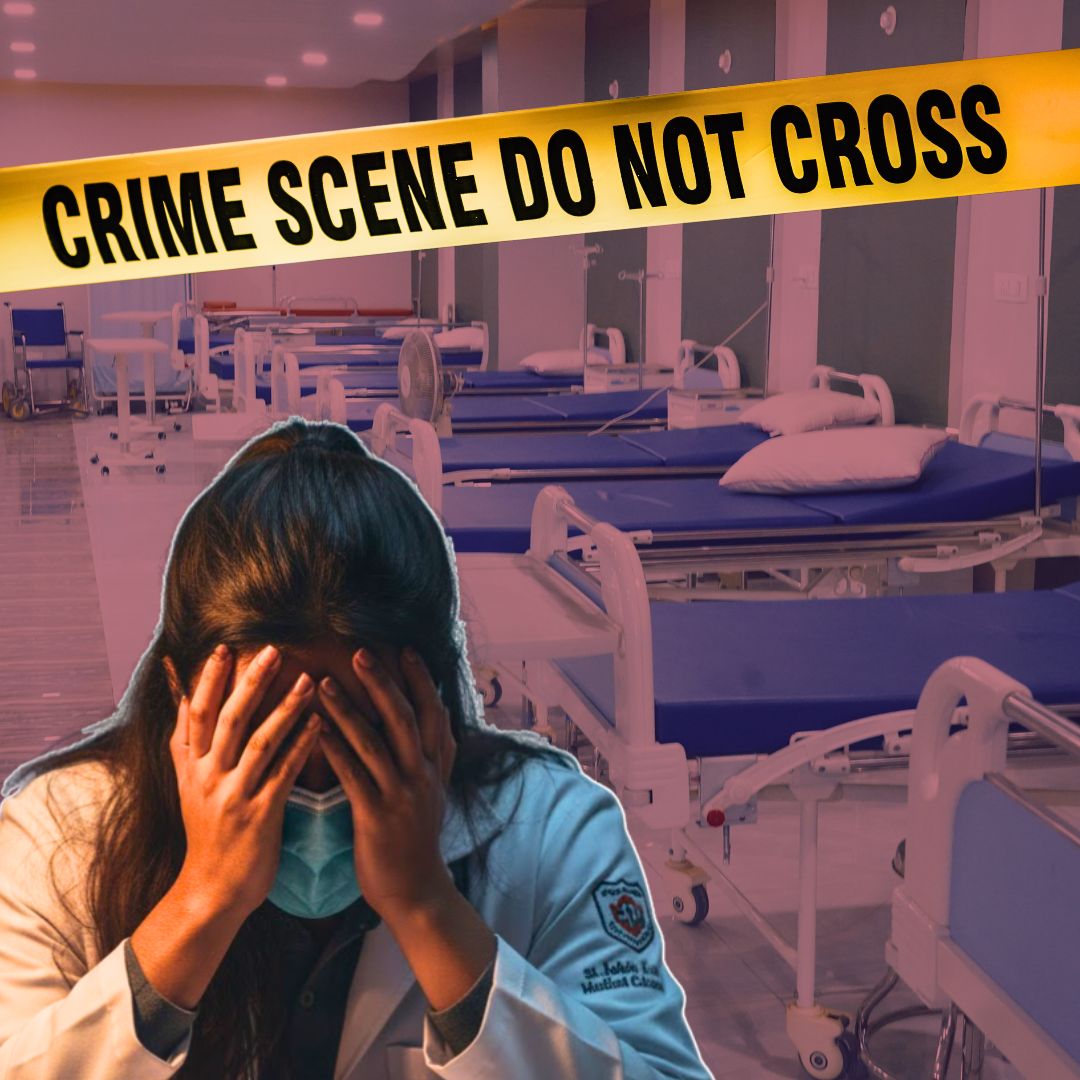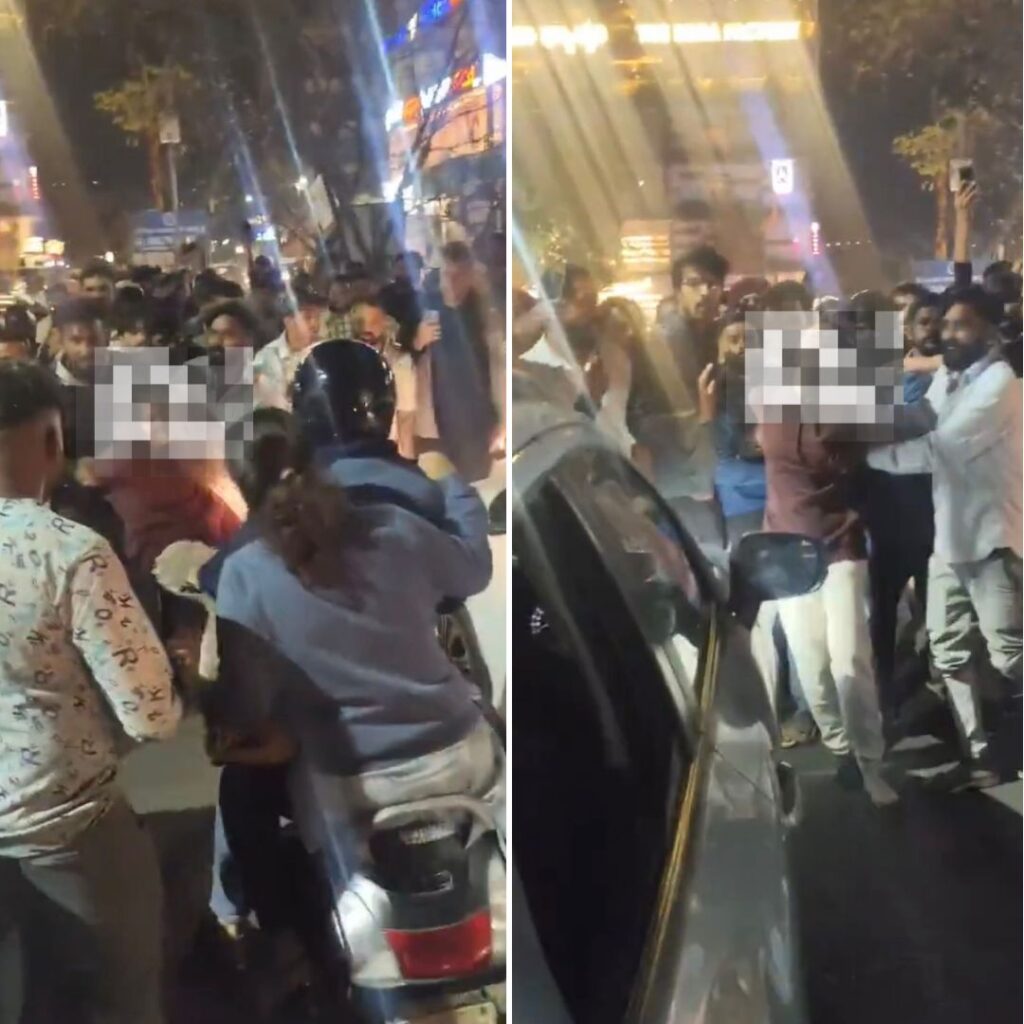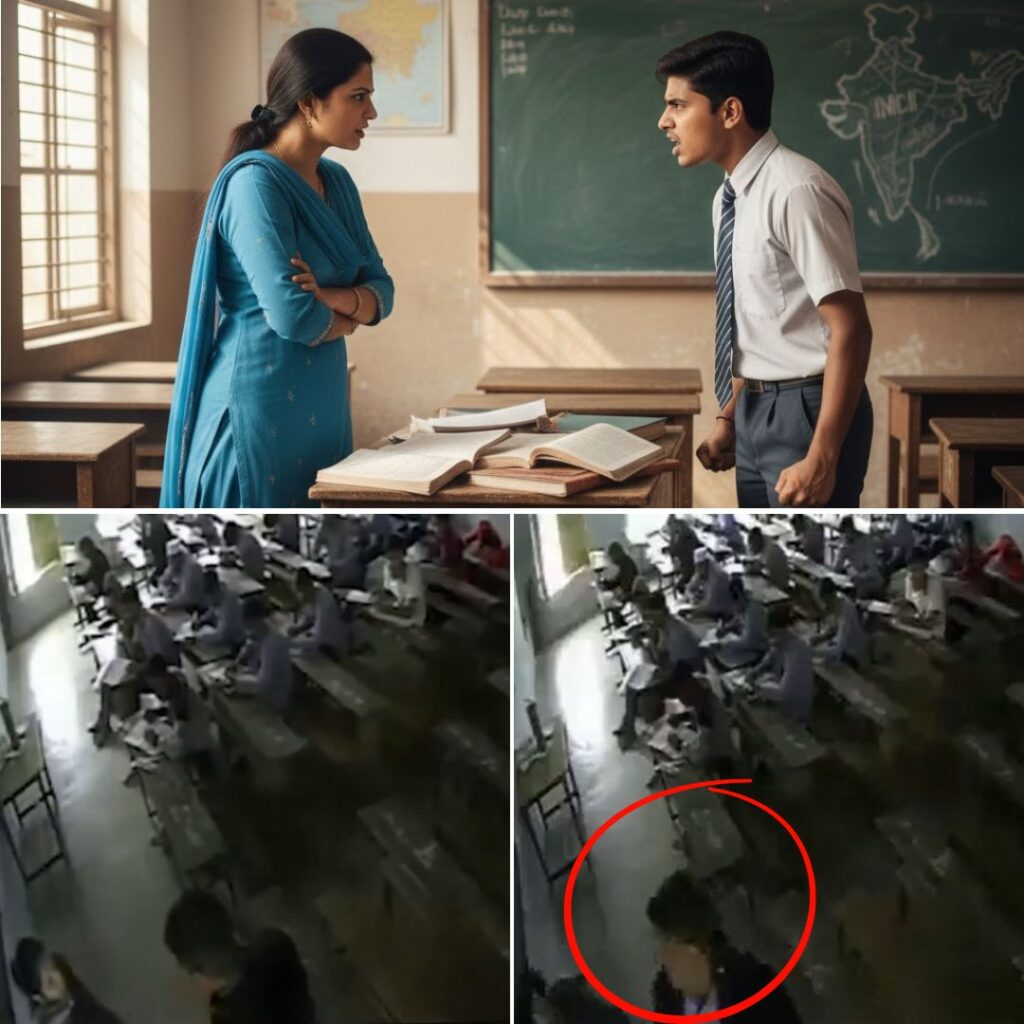A second-year female medical student of a private college in Durgapur, West Bengal, was allegedly gang-raped inside the hospital premises on the evening of October 10, 2025. The survivor, who is pursuing her MBBS degree and hails from Jaleswar in Odisha, was attacked near the campus gate after stepping out with a male friend around 8:30 pm.
The accused dragged her into a secluded area behind the hospital, where the assault took place. The incident bears chilling similarities to the 2024 RG Kar Medical College case in Kolkata, where a junior doctor was raped and murdered, sparking nationwide outrage.
The police have registered a case, launched a probe, and are questioning various persons including the survivor’s friend and medical college staff. The survivor is currently receiving medical treatment and psychological support at a hospital. Police sources have indicated that CCTV footage and multiple angles of investigation are being probed.
Incident Details and Reactions
The survivor’s father, who travelled to Durgapur following the incident, expressed anguish over the lack of campus security and inadequate response from the college administration. He said the survivor had gone out to eat ‘phuchka’ (a popular street snack) after a friend called her. When she reached the campus gate, around four to five men reportedly surrounded her, one of whom then attacked her.
The assailants reportedly robbed her of her mobile phone and demanded a ransom for its return. After the attack, the friend who accompanied her returned to find her gravely injured and helped admit her to the hospital. The father appealed for justice to prevent such incidents from happening to other girls and highlighted the urgent need for campus security reforms.
Authorities in Durgapur have assured the public that they are taking the matter seriously. Although police have not publicly named suspects or made arrests as of now, efforts to identify and detain the culprits are ongoing. Investigations are encompassing staff, other individuals present near the crime scene, and the survivor’s companion.
Hospital authorities have condemned the attack and stated steps are being taken to review and strengthen security protocols within the institution. Meanwhile, the survivor’s family and the local community remain demanding swift action and justice.
Connection to RG Kar Medical College Case
This horrific assault evokes painful memories of the 2024 incident at Kolkata’s RG Kar Medical College, where a 31-year-old female postgraduate trainee doctor was raped and murdered inside the hospital premises after a punishing 36-hour shift. The RG Kar case exposed deep lacunae in hospital security and institutional accountability, triggering mass protests by healthcare workers across India and the setting up of a national task force by the Supreme Court to recommend protocols for the safety of doctors.
The Central Bureau of Investigation (CBI) took over the probe in that case due to serious lapses in the initial investigation. The tragic death underscored the vulnerabilities faced by women in medical institutions, especially those working in public healthcare facilities. The Durgapur incident raises pressing questions once again about the effectiveness of reforms and protections introduced since.
The Logical Indian’s Perspective
The recurrence of such violent crimes within educational and healthcare institutions is unacceptable and demands urgent attention from government bodies, educational institutions, and society at large. Safety must be a non-negotiable right for all women, particularly those dedicating their lives to serving others as medical professionals.
Institutions must enforce stringent security measures, establish clear reporting mechanisms, and foster a culture of zero tolerance towards any form of harassment or violence. More fundamentally, society must address the underlying attitudes that perpetuate such violence through education, awareness, and dialogue rooted in empathy, respect, and coexistence.
The Logical Indian calls upon readers, policymakers, and communities to unite in demanding systemic changes that not only punish perpetrators but prevent such atrocities from occurring in the first place.












